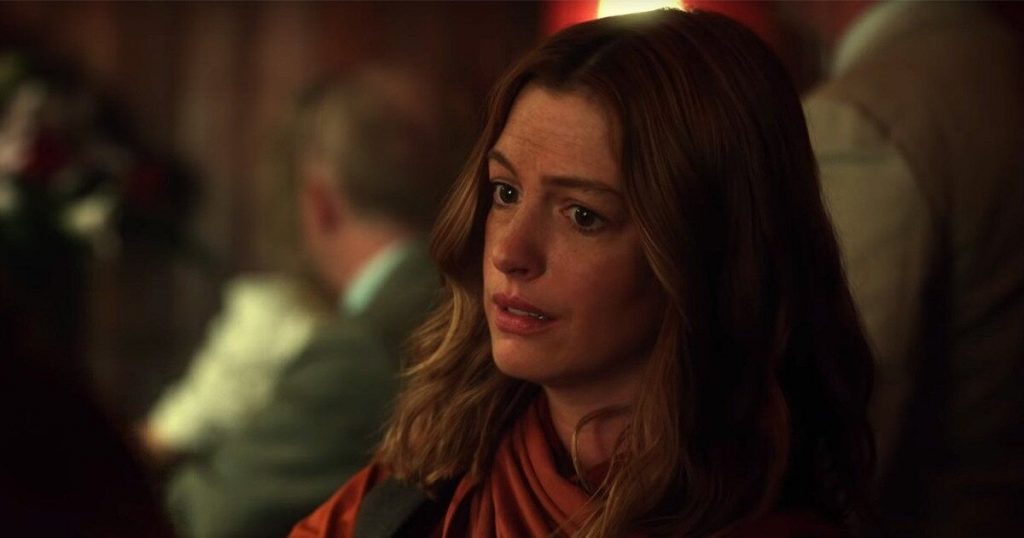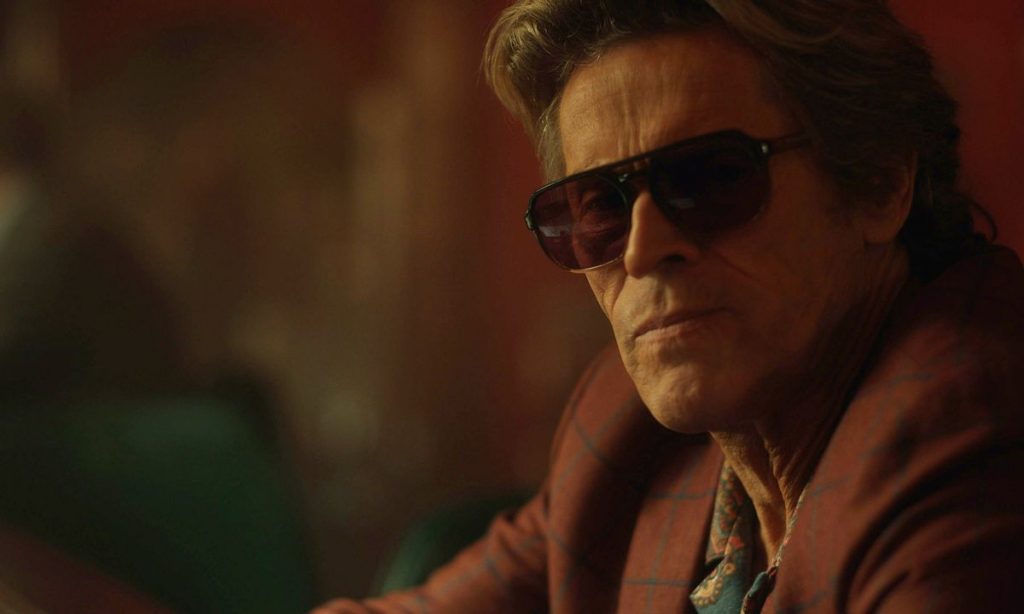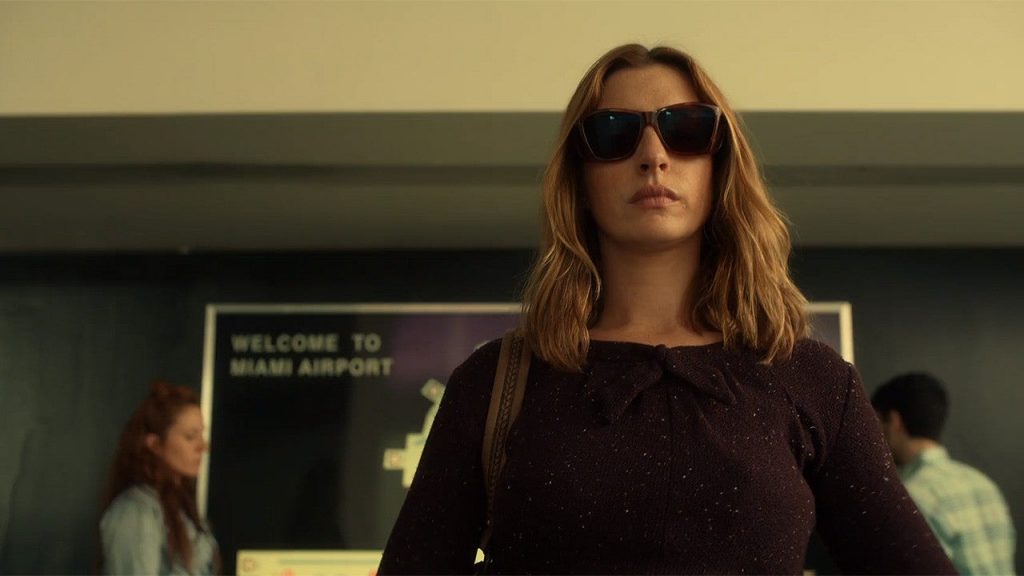The Last Thing He Wanted (2020).
Dee Rees’ newest film, The Last Thing He Wanted, just arrived as a Netflix original and the reviews have been savage:
“What makes The Last Thing He Wanted ultimately so frustrating is the fact that there are things it does quite well.” – Ignatiy Vishnevetsky, AV Club.
“The seemingly natural sparkle Anne Hathaway brings to her screen performances looks drained out of her.” – Glenn Kenny, The New York Times.
“How does a director as stellar as Dee Rees go so thunderously wrong adapting a 1996 novel by the great Joan Didion?” – Peter Travers, Rolling Stone.
So it’s not good, let’s get that out of the way – but we should talk about Dee Rees and unpack what happened here. She’s got four features under her belt including Pariah (2011), Bessie (2015), Mudbound (2017) and this imbroglio, along with an array of episodic television credits. She’s been in solid stead so far, attracting top-flight talent to her projects for prestige venues (Mudbound was nominated for both Golden Globes and Academy Awards). She’s proven her ability to put together complex projects with a delicate touch, while maintaining a level of art which has increased from film to film.
If you’re interested in learning more about Dee Rees, please watch my video essay about her career leading up to this film:
Rees has worked with adaptations before, namely Mudbound, based on a 2008 novel written by Hillary Jordan. Writing the screenplay herself, she departed noticeably from the source material to add a personal varnish to the story. She infused stories of her own family’s history with sharecropping, making the characters’ lives her own. I have to imagine that the task of reworking an existing novel couldn’t have been that far out of her wheelhouse.
Since this is review first and a post-mortem second: Anne Hathaway plays a D.C. journo named Elena McMahon, pounding the keys at a fictional broadsheet in 1984 on the Central American beat. She’s up to her neck in the Sandinista/contra conflict in Nicaragua, attracting heat from a State Department spook (Ben Affleck) who would rather she keep her nose out of his business (Didion’s novel, while fictional, was based on the political reality of that era). She becomes entangled in a coincidental arms deal being struck by her father, a fading drunk played by Willem Dafoe, and she assumes responsibility for the arrangement. It brings her back to Nicaragua as she puts together the big picture behind who is supplying “vanished” munitions to the Contras.

This is verdant soil to grow a movie from – you have tradecraft, the dirty wars of the 1980s, gun runners, depraved juntas, suitcases filled with cocaine, propeller planes rolling on dirt landing strips carved into the middle of the jungle – but nothing comes of it. It almost becomes harder to NOT make a good movie from these ingredients than it would be to succeed.
The movie’s problem isn’t Hathaway, even though she’s on cold streak (The Hustle and Serenity were her last two films). She’s canny enough an actor to find something in each character she plays to personalize the performance. Her ability to play this committed reporter gets bogged down in needless voiceover (based verbatim on Didion’s prose, which should not be lifted directly from the page to screen) and endless exposition.
The problem with Rees’ script (co-written by Marco Villalobos) is that it lacks all drive, a preposterous condition given the material. I don’t understand how the danger of hurrying away from one lethal threat into the crosshairs of another doesn’t give the story barreling momentum. I never saw the rationale for why Elena McMahon, so ambivalent about her deadbeat, dementia-afflicted father, would undertake such a criminal fool’s errand. Characters flit in and out of the movie and you’re never clear what their roles are. Also, films usually try to avoid the trap of introducing significant characters in the last 20 minutes, yet it happens here with Toby Jones’ fey shorefront hotelier, a secret bagman for the CIA and temporary safe harbor for Hathaway’s character until late-plot shenanigans kick in. (Spoiler: After they sex each other, Affleck’s wetwork operative shoots Hathaway through the heart, literally.)

Another issue with the writing is that it attempts to follow the very successful model of Tinker Tailor Soldier Spy, the 2011 John Le Carré adaptation by director Tomas Alfredson. That movie was renowned for its deep inscrutability and intricate plot twists, as befits a spy novel – however this mimics the twisty structure without any of the artful revelation to have it land emotionally.
So what works? Well, it looks great – Rees’ new collaborator on camera, cinematographer Bobby Bukowski, shoots the movie with tropical jungle heat in mind. Rees’ regular composer Tamar-Kali scores the movie with a mix of technothriller and Central American influences. And the cast is mostly great, with strong supporting performances by Rosie Perez, Mel Rodriguez, Edi Gathegi, and the mostly-unknown Juan Carlos Diaz in a small role as a gloriously unhinged arms trafficker.
Rees’ first three films leaned toward the intimate aspects of race and gender, which made them exceptional: Pariah described coming out in her teen years; Bessie was about the confluence of sexuality and race in early-20th century America; and Mudbound was about how class lashes people worse than race, if you see through to the truth of it. This adaptation may lack a purchase for Rees to grab hold of, perhaps a clue as to why it’s unfocused. Sometimes a lackluster shoot can be saved in the edit bay, but Rees and her talented regular cutter Mako Kamitsuna weren’t able to find the structure of a story in post.

Dee Rees will land on her feet regardless, in spite of Netflix abandoning this project faster than you can say “Cats”. She has the backing of a massive entertainment megaloplex, so I don’t see her missing out on the next chance to develop a film. I do hope that she’s able to forensically examine this failure and synthesize its lessons into her next project. I think her greatness isn’t theoretical, it’s proven by her filmography and she should be encouraged to rebound with another winner to re-establish herself as a distinct voice of her generation.
Film ’89 Verdict – 3/10
The Last Thing He Wanted is currently available on Netflix (regional variances may apply).

